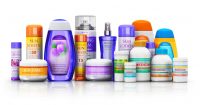SADLERProduct Liability Insurance Aggressively negotiating most favorable terms from leading carriers
Call Toll Free 800-622-7370
Categories
- Additional Insured
- ChildrensProducts
- Claims Made
- Cyber Insurance
- Dietary Supplements and Nutraceuticals
- Ecigarettes
- Firearms Insurance
- Food Products
- Foreign Products Liability
- Foreseeable Misuse
- Frivolous Lawsuits
- General Liability
- Industrial
- Infographics
- Intellectual Property
- Looking ahead
- Marijuana Liability
- Medical Products
- Mutual Indemnification
- Nano Technology
- News
- Online Sellers Insurance Requirements
- Outsourcing
- Piercing The Corporate Veil
- Pollution Liability
- Product liability
- Product Recall
- Retail Chain Store
- Start-Up Business
- Statute of Repose
- Surplus Lines Insurance
- Technology
Which Products Need FDA Approval?

It’s not just for food and drugs
Many of my current and potential clients are entrepreneurs marketing cosmetics, foods, dietary supplements and other products they’ve created for human and pet use and consumption. When discussing their insurance needs, I often get questions regarding FDA approval.
Not all such products require FDA approval before going on the market. Most are, however, under the regulatory authority of the FDA in the event of safety-related concerns.
Below is a list of the type of products that are regulated by the federal government.
- Human and animal drugs
- Medical biologics
- Medical devices
- Food (including animal food)
- Tobacco products
- Cosmetics
- Electronic products that emit radiation
Products requiring FDA premarket approval:
- Drugs and biologics are required to be proven safe and effective. According to the FDA, the product’s benefits must outweigh any risks related to its intended use.
- Animal drugs and food additives in animal food, which includes pets, poultry, and livestock.
- Medical devices. Approval depends on the risk classification of the device. Class I devices, such as dental floss and bandages, are subject to the least regulation. Catheters and wheelchairs are examples of Class II devices that require FDA “clearance” prior to marketing. These products are under regulatory controls that reasonably assure their safety and effectiveness. Implants and life-sustaining devices such as heart valves are examples of Class III devices, which require premarket approval by the FDA and are subject to the highest levels of regulation.
- Human tissues and cells for use in humans, such as corneas, skin and bone that can transmit infectious diseases are regulated. They must be preapproved prior to marketing if they pose risks other than the transmission of disease.
- Food ingredients and additives, such as preservatives and texturizers must be proven to be safe. Additives are also anything in the packaging, such as paper, adhesive or the plastic, that can intentionally or unintentionally come into contact with the food.
- Color additives that are used in any FDA-regulated products, which include drugs, food, dietary supplements, and cosmetics.
What doesn’t need FDA approval?
While the product categories below don’t require premarket approval, they do fall under the FDA’s regulations and/or are subject to FDA inspection.
- Compounded drugs, which are ingredients combined, mixed, or altered by a licensed pharmacist in order to tailor a medication for an individual patient.
- Healthcare-related companies, such as hospitals, surgery centers and other health facilities, laboratories, or manufacturers.
- Tobacco products are regulated based the product’s risks to the population as a whole. New tobacco products must receive a written order from the FDA stating the product complies with FDA requirements. This does not signify the product is safe or approved.
- Cosmetics, including makeup, shampoo, hair dyes and hair products, perfumes, moisturizers and soaps.
- Infant formulas have to be compliant with federal nutrient standards and be registered with the FDA.
- Dietary supplement manufacturers must notify the FDA before marketing products that contain new dietary ingredients.
- Food labels, though they must include the Nutrition Facts panel.
You can visit the FDA website for a more in-depth guide to regulated products.
Source: Jed P, Winer. “Just What Exactly Does The FDA ‘Approve’?” www.lexology.com. 19 Jan, 2017.
Posted By: Paul L. Owens
-
 Click the Button Below to Get Your
Click the Button Below to Get Your
No-Obligation Quotes from Among the
Top 18 Leading Insurance Carriers Today -
Recent Industry News
- Amazon Sellers and Vendors Strategy Including Insurance Requirements
- Walmart Sellers Insurance
- Product Liability Limit Requirements of Online Sellers
- State-by-State Product Liability Analysis of Laws Impacting Businesses
- Children’s Product Liability: Strange Claims and Need for Insurance
- Product Liability vs. Environmental Insurance for the Chemical Industry
- Product Liability in the 3D Printing Industry: New Materials and Their Significance
- Product Liability Concerns in Agricultural Equipment Enhanced with Artificial Intelligence
- Navigate Product Liability in Battery and Solar Industry
- Cyber Risk Insurance Is Essential Business Insurance in Today’s Modern World
Monthly News Archives
